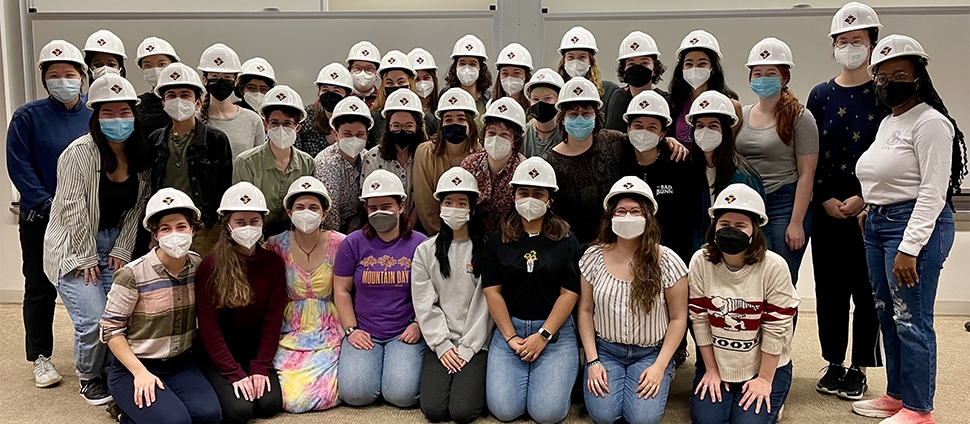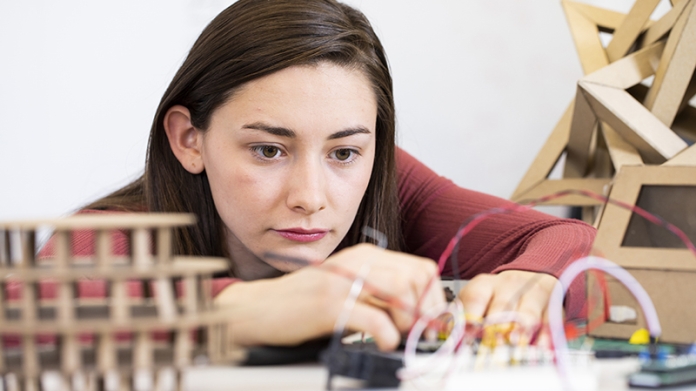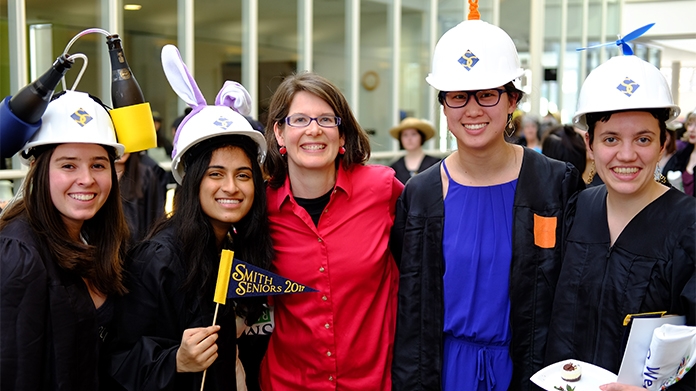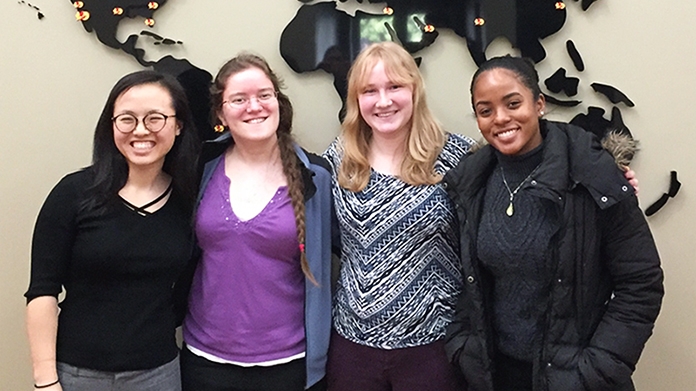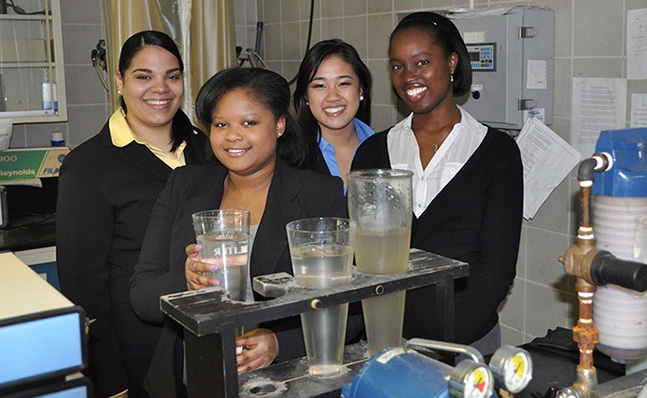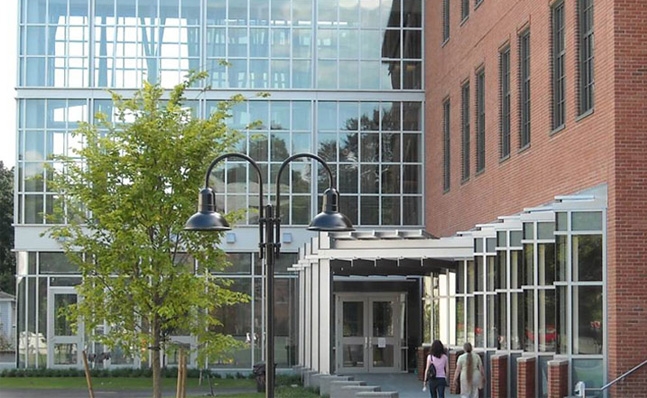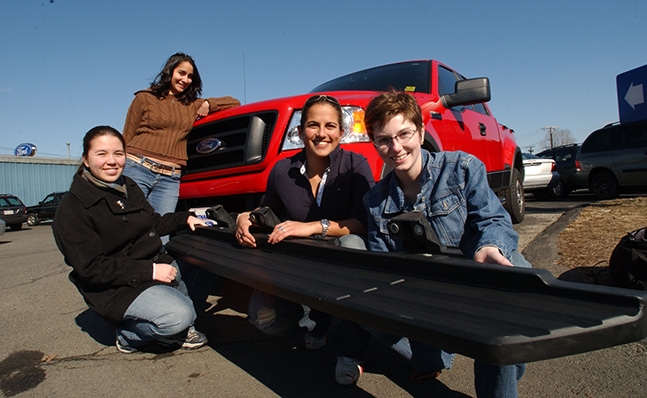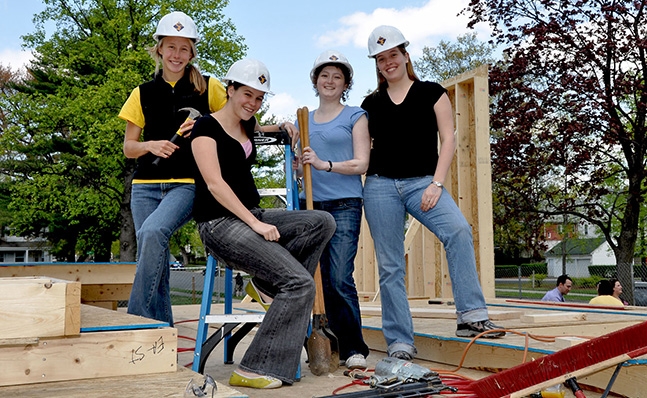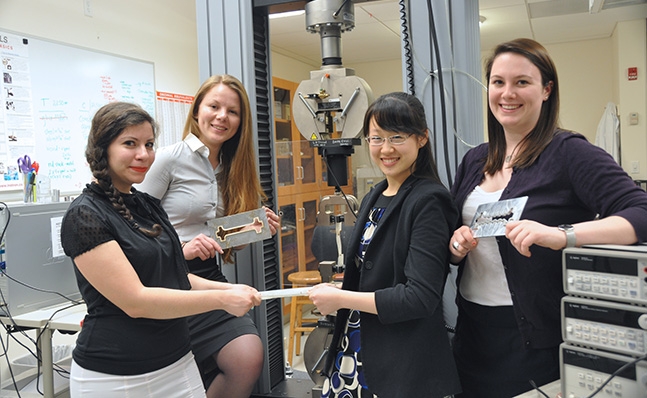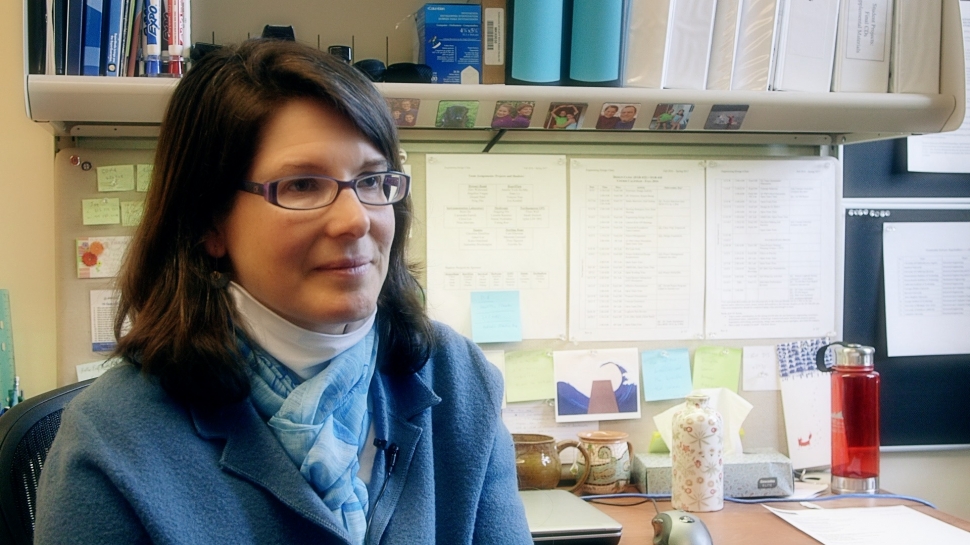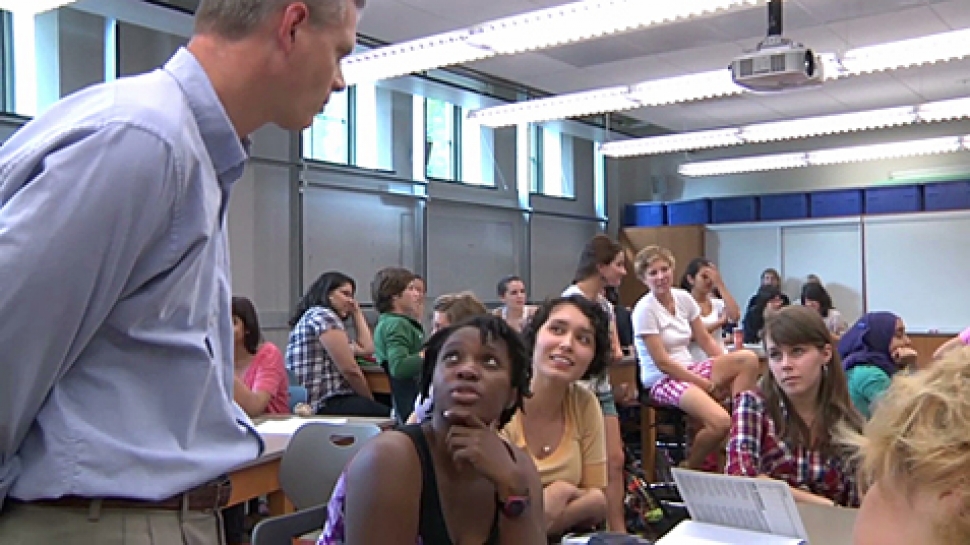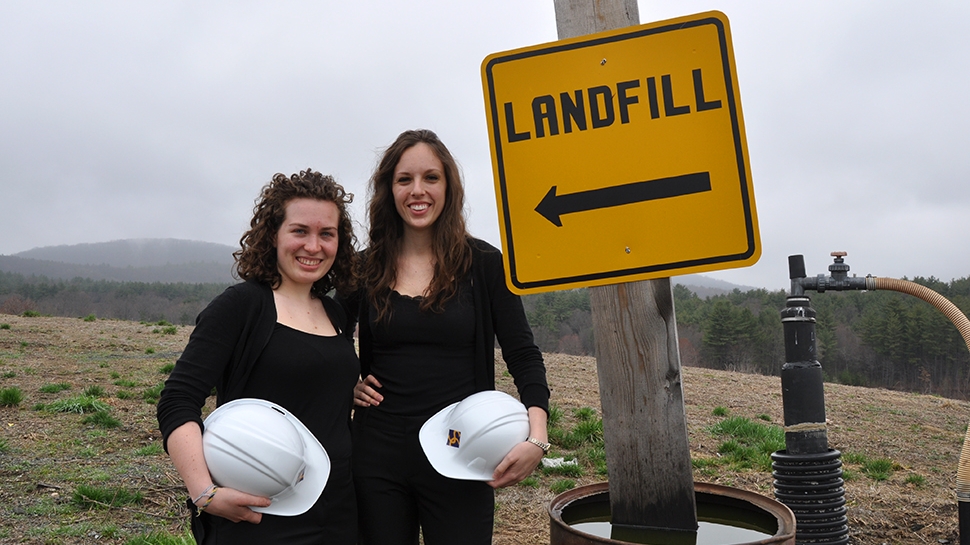In 2004, Smith College made history when 19 women graduated as part of the first class of engineers ever from an all-women’s ABET-accredited engineering program. The reasons to study engineering at a women’s liberal arts college are compelling. As a creative endeavor at the intersection of design, science and mathematics, engineering draws on nearly all aspects of the human experience, including history, politics, economics, arts and societal aspirations. The work of engineers both exacerbates and solves some of our gravest societal problems, including climate change, disease, resource limitations and conflict.
Visit the Engineering Moodle page for program information, resources, and more.
Design Clinic
Design Clinic is a two-semester course in which students collaborate in teams on actual applied design projects sponsored by real clients in industry and government.
About the Picker Engineering Program
Despite its central importance in society, engineering stands virtually alone as a professional degree with a small and declining participation by women. The Picker Engineering Program addresses this problem by using the resources and expertise of a women’s college to create a positive learning environment for women to study engineering. The program offers a supportive learning community, a flexible curriculum and female role models, exploring societal contexts in problem solving using pedagogies that increase engagement and address problems in engineering education.
Smith’s liberal arts environment enables students to contextualize engineering in the framework of bigger societal questions and to think in different ways as they collaborate on interdisciplinary teams. The program is learner-centered in its curriculum and pedagogy. Students work closely with faculty to design individualized plans of study that address both their learning goals and the technical requirements of the profession. Research-based teaching helps students to develop a deep and integrated understanding of engineering concepts and to work creatively to generate new theories, products and knowledge.

